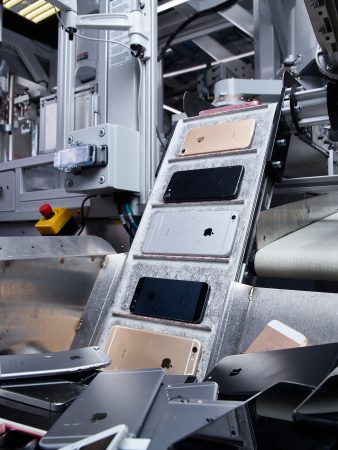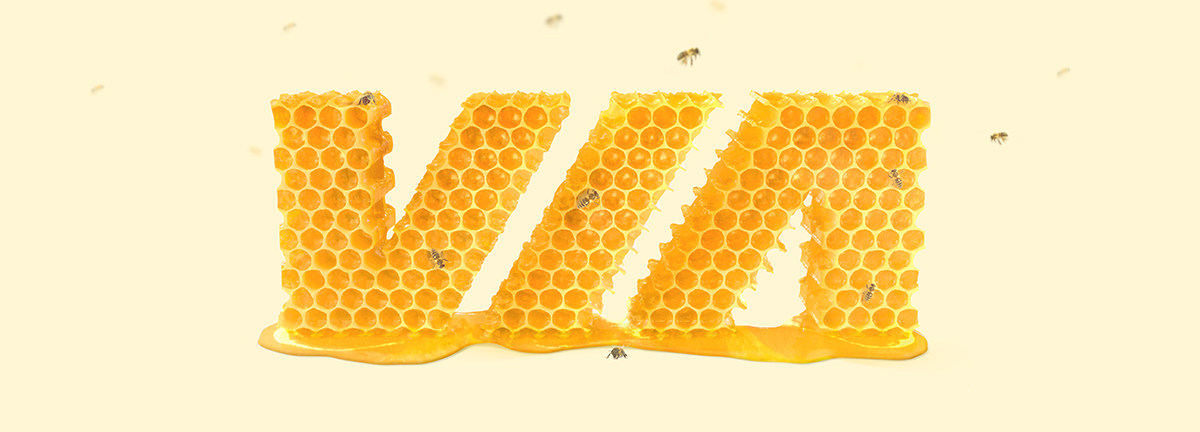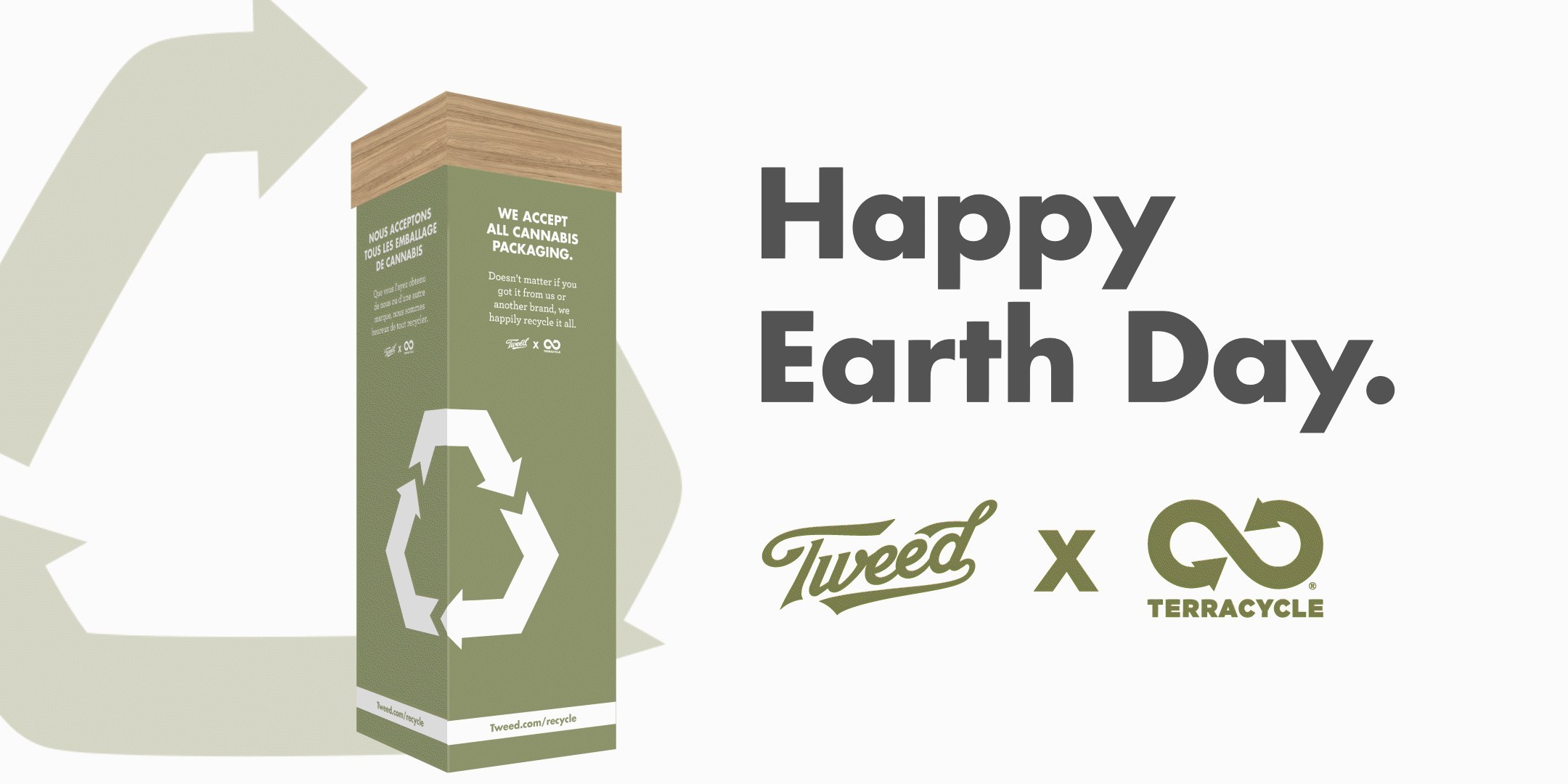
Who’s doing it for the planet
Rehana Begg

From recycling iPhones to upcycling cannabis containers, environmental stewardship programs have become de rigueur

PHOTO: Daisy, Apple’s recycling robot, will now disassemble used iPhones returned to Best Buy in the U.S. and KPN in the Netherlands/Apple
In the spirit of Earth Day 2019, people around the world are taking stock of the significant challenges facing the environment.
Climate change is a global problem that needs global solutions, noted Prime Minister Justin Trudeau in his Earth Day statement. “Canada is working with partners around the world to meet our Paris Agreement commitments, and fight climate change and its disastrous effects – including by helping developing countries fund adaptation and resiliency measures,” said Trudeau.
That same message is reverberating across industry in programs ranging from single-use plastics and water reduction, to supply chain finance and locating beehives on train-station rooftops.
Following are seven ways companies make a difference in their business and personal affairs.
1. iPhone recycling program

PHOTO: Daisy is capable of disassembling 200 iPhones per hour/Apple
Ahead of Earth Day, Apple announced a major expansion of its recycling programs, quadrupling the number of locations U.S. customers can send their iPhone to be disassembled by Daisy, its recycling robot.
Daisy disassembles and recycles select used iPhones returned to Best Buy stores throughout the U.S. and KPN retailers in the Netherlands. Customers can also turn in their eligible devices to be recycled at any Apple Store or through apple.com as part of the Apple Trade In program.
In Canada, customers can trade in eligible devices for an Apple Store Gift Card. If it’s not eligible for credit, Apple will recycle it for free.
2. Sustainable supply chain finance
A roll-out of a sustainable supply chain finance program through HSBC and Walmart pegs a supplier’s financing rate to its sustainability performance.
This global program allows Walmart’s suppliers who demonstrate progress in Walmart’s Project Gigaton or Sustainability Index Program to apply for improved financing from HSBC based on their sustainability ratings.
Walmart’s Project Gigaton initiative aims to avoid one billion metric tons (a gigaton) of greenhouse gases from the global value chain by 2030 through supplier commitments. Walmart’s Sustainability Index Program – developed by The Sustainability Consortium – gathers and analyzes information across a product’s life cycle, to help Walmart benchmark suppliers and encourage continuous improvement.
3. Reducing environmental impacts of product manufacturing
In honour of Earth Day, Gap Inc. pledged new commitments for sustainable product innovation and technology across its from Banana Republic and Old Navy portfolio.
The company has been steadily scaling partnerships with sourcing suppliers and industry groups throughout its supply chain. As part of its Gap for Good platform for more sustainable fashion, Gap committed to obtaining 100 per cent of its cotton from more sustainable sources by 2021, employing water-saving techniques, as well as empowering women through Gap Inc.’s signature life skills and education program, P.A.C.E. (Personal Advancement & Career Enhancement).
The brand’s smart denim wash program, Washwell, has saved more than 229 million litres of water since 2016 when compared to conventional wash methods.
4. A classic shirt gets a makeover
The Polo shirt gets a makeover with the launch of The Earth Polo. The shirt is crafted from thread derived entirely from recycled plastic bottles and dyed in a process that uses zero water.
Ralph Lauren will commit to removing at least 170 million bottles from landfills and oceans, and will convert the use of all virgin poly-fibre to recycled poly-fibre by 2025, reports Polo Ralph Lauren chief innovation officer, David Lauren.
The Earth Polo was produced in partnership with First Mile, an organization that works with entrepreneurs in low-income communities to collect recyclable plastic bottles, which are then processed through a unique and eco-friendly manufacturing program and turned into high-quality yarn and ultimately fabric.
5. Single-use plastic reduction

PHOTO: Air Canada via CNW Group
Air Canada is strengthening its plastic reduction strategy by partnering with environmental organization 4ocean. The partnership will work towards the elimination single-use plastic.
Air Canada and 4ocean are working to develop educational resources on ocean conservation for Air Canada employees and to further enhance the company as an environmental steward.
To date, 4ocean has removed more than four-million pounds of trash from the ocean and coastlines. Global cleanup operations are funded entirely through the sale of their bracelets and sustainability products, where every item purchased funds the removal of one pound of trash from the ocean.
6. Beehives on rooftops

PHOTO: VIA Rail Canada via CNW Group
VIA Rail Canada is shuttling its environmental stewardship efforts through a partnership with Alvéole, a young Canadian company that merges beekeeping with education and local communities.
The partnership involves the installation of beehives on the rooftops of four VIA Rail stations: Vancouver, Winnipeg, Ottawa and Québec City. By teaming up with Alvéole, VIA Rail wants to raise awareness among urban populations of the decline of bees and the impact it has on the environment.
In the high season, each station will be home to two hives hosting up to 100,000 bees, reports Via Rail. Hives will be installed in May at the Vancouver station, and in June at the Winnipeg, Ottawa, Québec City stations. By the end of each season, the total output of all hives will allow for the production of 800 honeypots, 400 soap bars, 400 candles and 400 lip balms, which will be offered to charities in each of the cities. In the winter, the beehives will be closed to allow the bees to hibernate.
7. Upcycle and divert packaging from landfills

PHOTO: Canopy Growth Corporation via CNW Group
Tweed, a subsidiary of Canopy Growth Corporation, and TerraCycle, a leader in recycling hard-to-recycle materials, officially launched the Tweed x TerraCycle recycling program across Canada.
First introduced in October 2018, the Tweed x TerraCycle Cannabis Packaging Recycling Program accepts all cannabis containers from licensed producers – including tins, plastic bags, tubes, and bottles with child-proof caps, which are notoriously tricky to recycle.
The program, which has saved more than 165,000 containers from ending up in landfills, is currently active in more than 106 legal cannabis retail locations across Canada. In addition to drop-off points located at participating retail stores, consumers have the option to register online through Tweed.com for free pickup and recycling of their discarded containers.